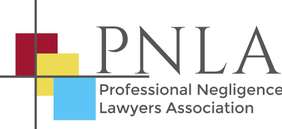Professional negligence time limits: The clock is ticking

If you have a professional negligence claim, it is crucially important that you are aware of the time limit or limitation period applicable to your claim. Once the limitation period expires, the negligent professional gains an absolute defence to the claim, and you cannot recover your losses.
Limitation periods exist because it is considered unfair for a defendant to remain exposed to potential claims in perpetuity. In addition, old, stale claims are far more difficult to run. The older the claim, the more likely it is that documents evidencing what happened will be lost or destroyed, and the memories of the people involved will fade. In the public interest, limitation periods have been applied to reduce the time period within which a claimant can advance a claim.
What are the limitation periods?
The various limitation periods are set out in the Limitation Act 1980. The main limitation periods relevant to professional negligence claims are:
Breach of contract: six years from the date the contract was breached. If you enter a contract with a professional, you have six years from the date the professional breached the contract before your claim is out of time.
Negligence: the primary limitation period is six years from the date you suffered a loss because of the negligent act or omission. There is also a secondary limitation period, which, in rough terms, runs for three years from the date that you became aware (or should have become aware) of the facts of your claim, subject to a long of 15 years from the date that the loss was suffered.
Fraud and deliberate concealment: six years from the date you discovered the fraudulent act or that something was deliberately hidden from you.
Breach of trust: six years from the date of the breach.
Can I protect a limitation period?
It is possible to protect a limitation period. If you issue proceedings (i.e., your claim to sue a professional in the Court) before the limitation period expires, it will be protected.
Once the claim is issued, you have four months to serve the Claim Form and Particulars of Claim on the professional. You can use this period to investigate your claim further and prepare the Particulars of Claim. If you need more time, you can try to agree on an extension of time for service or ask the Court to stay the proceedings.
However, be warned. The cost of issuing can be high, and you will likely incur extra legal costs in progressing the claim according to the Court’s timetable.
In addition, you will face a cost risk if you decide to discontinue the claim, if the Court has cause to criticise your conduct or, at worst, if your claim is unsuccessful.
Instead of issuing the claim, you can seek to enter a Standstill Agreement with your opponent before the limitation period expires. This contractual agreement states that you both agree to suspend the limitation period applicable to the claim for a certain period. The Standstill Agreement can be extended whenever necessary.
It may seem daunting to persuade your opponent to agree on a Standstill Agreement, but defendants are often open to doing so if they think there is a risk that you will issue proceedings. A Standstill Agreement allows both parties to avoid the costs and risks of issuing a claim and gives both time to resolve the claim themselves.
Bear in mind that a Standstill Agreement is unlikely to protect limitation periods that expired before the Agreement was signed. For example, if you seek to protect secondary limitation, but it is later established that you knew or should have known about the claim earlier, then there is a risk that the Standstill Agreement will not protect your claim.
What should I do if I realise a limitation period is expiring soon?
If you become aware that the applicable limitation period for your claim will expire soon, it is strongly recommended that you seek advice from a specialist professional negligence lawyer.
There are two main reasons for this:
Firstly, calculating limitation periods can be more complicated than it appears at first sight, particularly when it comes to establishing secondary limitation periods. Remember, the secondary limitation period may run from the point that you should have become aware of the facts of your claim, not necessarily when you became aware. You may need expert advice to be sure when the limitation period began running.
Secondly, when you instruct a professional negligence lawyer to protect limitation, you pass responsibility for monitoring the limitation date and taking steps to protect it to your lawyer. The burden of making sure the date is protected is off your shoulders.
If you think you may have a claim against a professional who has acted for you and would like advice from a specialist professional negligence solicitor, don't hesitate to contact Alice Evelegh-Taylor at Tees at alice.evelegh-taylor@teeslaw.com to discuss your claim.
Chat to the Author, Alice Evelegh-Taylor
Senior Associate, Dispute Resolution and Litigation, Cambridge office
Meet Alice
- Areas of expertise
- Accreditations

